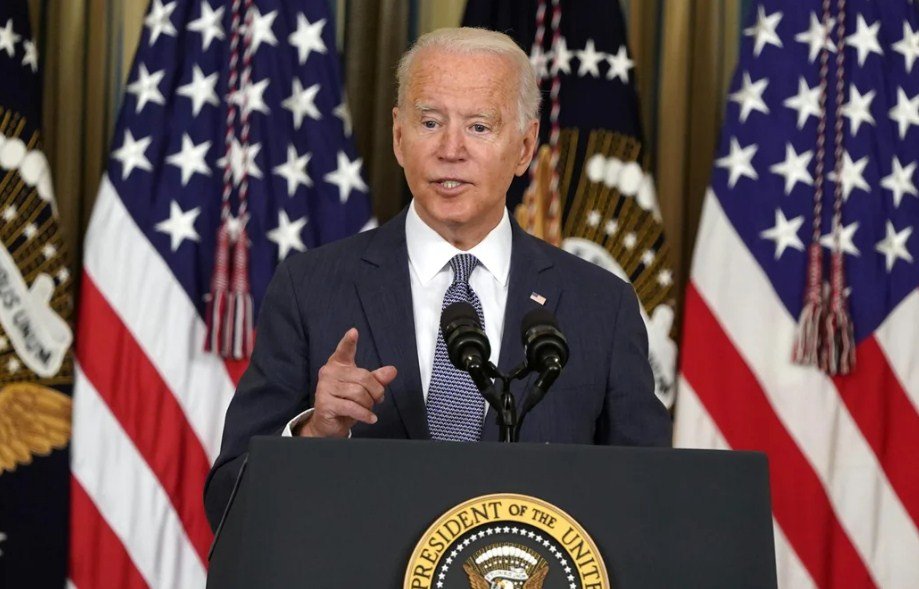President Joe Biden has made promoting competition in the American economy a key priority of his administration. He has appointed several progressive antitrust enforcers and signed an executive order that aims to curb the power of dominant firms and protect consumers, workers and small businesses. But this fall, his competition agenda will face several tests in the tech and telecom sectors, as the government pursues antitrust lawsuits against Big Tech companies and tries to restore net neutrality rules.
FTC Sues Amazon Over Alleged Monopolization of Online Retail
On Tuesday, the Federal Trade Commission (FTC) filed its long-awaited antitrust suit against Amazon, accusing the e-commerce giant of illegally maintaining its monopoly over online retail by using exclusionary and coercive tactics against third-party sellers, competitors and consumers. The FTC alleges that Amazon has abused its dominant position in the U.S. online retail market, which accounts for more than 70% of all online sales, by imposing unfair fees and restrictions on sellers who use its platform, preventing them from offering lower prices or better services elsewhere. The FTC also claims that Amazon has used its control over data, logistics and digital devices to favor its own products and services over those of rivals, harming competition and innovation.
The FTC’s suit against Amazon is the first major antitrust case against a Big Tech company under the Biden administration, and it follows a similar lawsuit filed by the District of Columbia in May. The FTC is seeking to end Amazon’s alleged anticompetitive practices and restore a fair and competitive online retail market. The FTC is also seeking monetary relief for consumers who have been harmed by Amazon’s conduct.
FCC Proposes to Reinstate Net Neutrality Rules
On the same day that the FTC sued Amazon, the Federal Communications Commission (FCC) announced a proposal to reinstate net neutrality rules, which prohibit internet service providers (ISPs) from blocking, throttling or discriminating against online content and services. The FCC’s proposal comes after a federal appeals court upheld the repeal of net neutrality rules by the Trump administration in 2019, but also invited the FCC to reconsider some aspects of its decision.
Net neutrality rules were first adopted by the Obama-Biden administration’s FCC in 2015, based on the principle that ISPs should treat all internet traffic equally, regardless of its source or destination. Net neutrality supporters argue that these rules are necessary to preserve an open and free internet, where consumers can access any lawful content and services they choose, and where innovators can create new applications and platforms without fear of being blocked or slowed down by ISPs. Net neutrality opponents contend that these rules are burdensome and unnecessary, and that ISPs should be able to manage their networks as they see fit, without government interference.
The FCC’s proposal to restore net neutrality rules is expected to face legal challenges from ISPs and their allies, who have argued that the FCC lacks the authority to regulate broadband as a utility service under Title II of the Communications Act. The FCC’s proposal will also need to be approved by a majority of its commissioners, which currently consists of two Democrats and two Republicans. The fifth commissioner seat remains vacant, awaiting nomination by President Biden and confirmation by the Senate.
DOJ Litigates Antitrust Suit Against Google Over Search Dominance
Meanwhile, the Department of Justice (DOJ) has been litigating its own antitrust suit against Google in Washington, D.C. District Court, three years after the initial complaint was filed during the Trump administration. The DOJ’s suit accuses Google of illegally maintaining its monopoly over general search services, search advertising and general search text advertising in the U.S., by entering into exclusive agreements with device makers, carriers and browsers to make Google the default search engine on billions of devices. The DOJ alleges that Google has used its dominance in search to harm competition and consumers, by limiting choice, stifling innovation and reducing quality.
The DOJ’s suit against Google is the first of a new era of tech monopolization cases in federal court, following decades of relative inaction by antitrust enforcers. The DOJ’s suit is also joined by a separate lawsuit filed by a coalition of state attorneys general, led by Texas, which focuses on Google’s alleged anticompetitive conduct in the online advertising market. Both lawsuits are expected to go to trial early next year.
The DOJ is seeking to end Google’s alleged anticompetitive practices and restore a competitive market for search services and search advertising. The DOJ is also seeking structural relief, which could include breaking up or divesting parts of Google’s business.
Biden’s Competition Vision Faces Uncertain Outcomes
President Biden’s pro-competition agenda is being put to the test this fall, as his administration pursues several actions in the tech and telecom sectors that could have significant implications for consumers, businesses and innovation. However, these actions are also likely to face fierce opposition from powerful industry players and legal hurdles from courts. The outcomes of these actions are uncertain and could take years to resolve. Whether Biden’s competition vision will succeed or fail remains to be seen.

